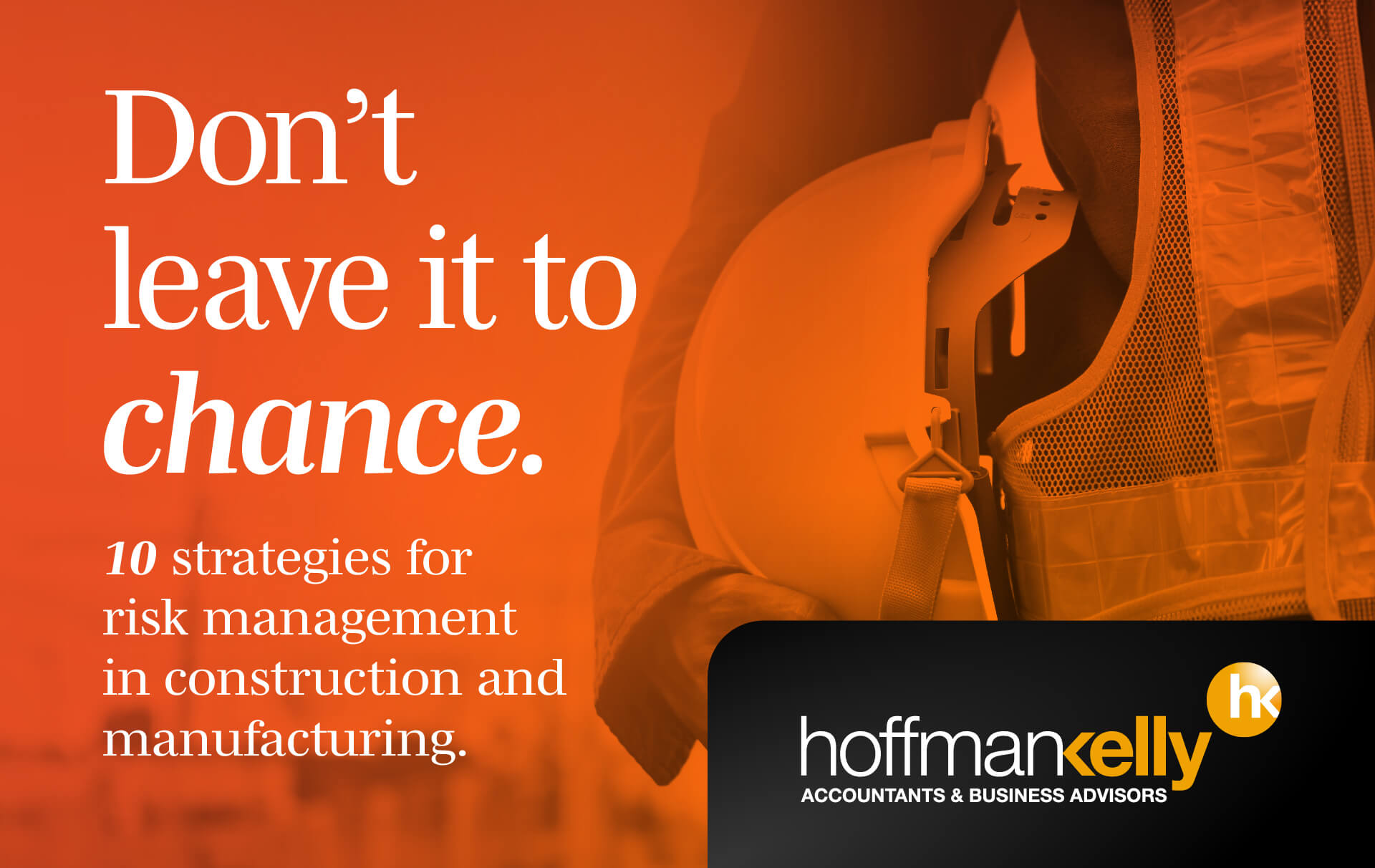In the world of business, risk and uncertainty are inevitable factors that every business leader must confront.
For the construction and manufacturing industries in Australia, these challenges can be particularly complex due to their unique characteristics. As an accounting firm specialising in business advice for privately owned businesses in construction and manufacturing, we’ve seen it all. If you want to be a successful business in these sectors, here are our top 10 insights and strategies that you need to implement as a business owner.
1. Risk Identification and Assessment
Perhaps stating the obvious to some, but the first step in managing risk is to identify and assess potential threats to your business. In the construction and manufacturing sectors, risks can be diverse, ranging from licensing/regulatory changes and supply chain disruptions, to accidents and environmental concerns. It’s essential to create a comprehensive risk profile for your business by categorising and prioritising risks based on their impact and likelihood.
2. Develop a Risk Management Plan
Once you’ve identified and assessed risks, it’s time to develop a risk management plan. This plan should include strategies for mitigating, transferring, or accepting risks. Collaborate closely with your key stakeholders and advisors to create a customised plan that aligns with your business objectives and risk tolerance.
3. Insurance and Risk Transfer
Insurance plays a crucial role in risk management for construction and manufacturing businesses. Ensure you have adequate insurance coverage to protect against various risks, including property damage, liability claims, and worker-related incidents. It is important to review and update your insurance policies regularly to reflect any changes in your business or industry regulations.
4. Regulatory Compliance
In the construction and manufacturing industries, complying with regulations is non-negotiable. You must stay up to date with industry-specific regulations and environmental standards. Failure to comply can lead to costly fines and legal consequences, including potentially losing your ability to trade e.g. state-based licensing requirements to be able to trade.
5. Supply Chain Management
Supply chain disruptions can significantly impact manufacturing and construction businesses. COVID taught us all a lot about the importance of diversifying supplier risk, maintaining buffer (but not excessive) stock levels, and establishing contingency plans to mitigate the risk of disruptions. Building strong relationships with key suppliers can also help in times of crisis.
6. Financial Forecasting and Budgeting
Strong financial forecasting and budgeting are critical in managing uncertainty. Ensure your financial records are well maintained, reporting is up to date, forecasts are being revised and you have a very tight grip of reality regarding cashflow planning.
7. Strategic Planning
Develop a long-term strategic plan that includes scenarios for different economic conditions, and/or thoroughly explores risks and associated mitigation strategies. This allows you to adapt and make prompt informed decisions in times of uncertainty.
8. Technology and Automation
Embracing technology and automation can enhance efficiency and reduce risk in manufacturing and construction businesses. Implementing modern software for project management, inventory control, financial reporting and quality assurance can streamline operations and improve risk management.
9. Workplace Safety
Safety is essential in these industries. Businesses, especially in these sectors, should establish and maintain rigorous safety protocols to prevent accidents and injuries. A proactive approach to safety not only saves lives, but also protects the business from costly legal battles and reputation damage.
10. Continuous Monitoring and Evaluation
Finally, risk management is an ongoing process that is not a set-and-forget exercise. You should continuously monitor and evaluate risk management strategies and regularly assess the effectiveness of risk mitigation efforts and adjust as needed.
We’re Here to Help!
Managing risk and uncertainty in the construction and manufacturing industries in Australia requires a combination of proactive planning, risk assessment, compliance, and financial prudence. As an accountant specialising in providing business advice to these sectors, with an extensive network of specialists we work alongside, Hoffman Kelly are experts at guiding you through these challenges. Whether directly, or alongside those specialists in our network, we take great pride in contributing to our clients’ long-term success and stability by helping navigate the complexities specific to your business. Submit an enquiry online, or call us today on 07 3394 2311.

